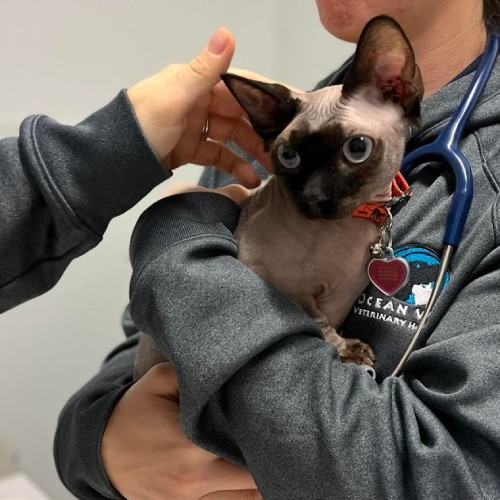Pet Vaccinations
Does your cat or dog need all of those vaccines every year? There is no easy answer to that question, but our veterinarians can help you decide the best vaccination protocol for your pet.
Below is a summary of vaccine requirements and options:
Rabies shots for Cats and Dogs:
Rabies Shots are required by New Jersey state law for all dogs and cats, even those who are primarily indoor or indoor only. The first Rabies vaccine is good for one year. Each vaccine after that is good for 3 years.
For cats, there is a new Rabies vaccine that must be given yearly, but has a decreased risk of side effects (vaccine associated sarcoma). If you are interested in the PureVax Rabies vaccine for your cat, please talk to your veterinarian at your next visit.
If your pet has a bite wound of unknown origin or a bite wound from an animal with an unknown Rabies vaccine status, your pet’s Rabies vaccine should be boostered ASAP, even if he/she is currently up to date.
Vaccines for Dogs
DA2PP:
Often called the distemper vaccine, the DA2PP vaccine is a combo vaccine protecting against canine distemper virus, parvovirus, parainfluenza, and adenovirus. After the puppy series, this vaccine is usually given every 1 to 3 years. Talk to your veterinarian about the best protocol for your dog.
Leptospirosis:
This is a vaccine recommended yearly for dogs that are considered at risk. Leptospirosis is a disease carried by wildlife that can be transmitted to dogs and people. Dogs that spend time outdoors may be at risk. Indoor only dogs do not need to be vaccinated against Leptospirosis. Talk to your veterinarian about your dog’s potential exposure and whether the lepto vaccine is the right choice.
Lyme:
This vaccine is recommended yearly for dogs at risk. Lyme disease is a tick borne illness that can cause a variety of symptoms. The Lyme vaccine can prevent your dog from developing Lyme disease if he or she is exposed through a tick bite. Use of an effective flea and tick preventative is still recommended because ticks can transmit other diseases as well. Discuss with your veterinarian your dog’s risk of Lyme disease and if a Lyme vaccine necessary.
Bordetella (Kennel Cough):
This vaccine is given every 6 to 12 months to dogs at risk. This vaccine protects against upper respiratory disease. Dogs most at risk are those who spend time with other dogs – dog parks, boarding kennels, doggy daycare, pet stores, groomers are all places where dogs are commonly exposed to upper respiratory infections. Dogs that are vaccinated can still get kennel cough, but the disease is usually much shorter and less severe. In severe cases, kennel cough can progress to pneumonia. If your dog has frequent exposure to other dogs please talk to your veterinarian about the Bordetella vaccine.
Vaccines for Cats
FVRCP:
This vaccine is frequently called the feline distemper vaccine. FVRCP actually protects against feline viral rhinotracheitis, calicivirus, and panleukopenia. After the kitten series, this vaccine is usually given every 1 to 3 years. Talk to your veterinarian about the best protocol for your cat.
FeLV (feline leukemia):
This vaccine is recommended for most kittens. Adult cats that are feline leukemia negative, indoor only and live alone or with other feline leukemia negative cats may not need this vaccine. Adult cats that are considered at risk should get the FeLV vaccine yearly. Please talk to your veterinarian about your cat’s risk of feline leukemia.

